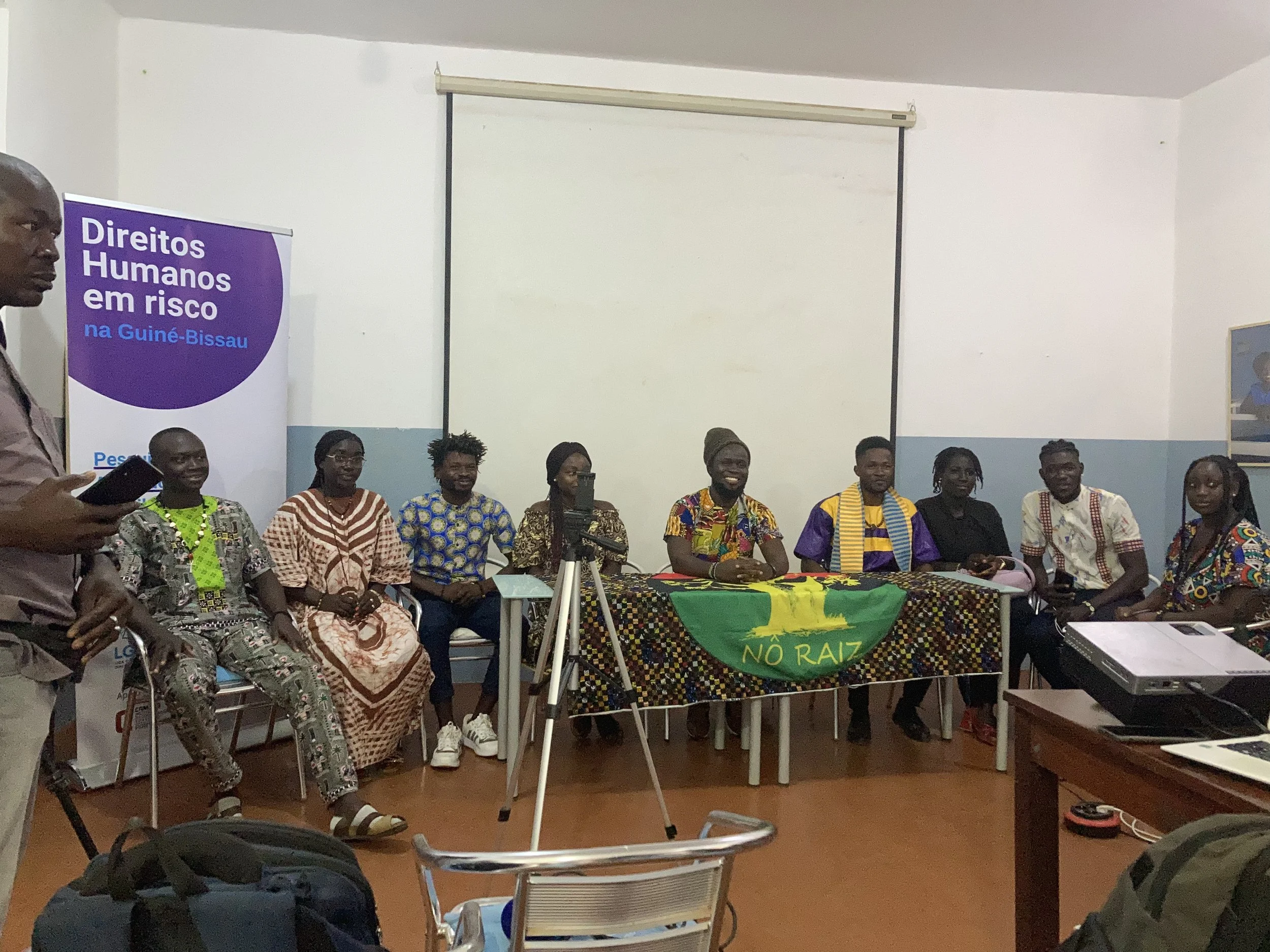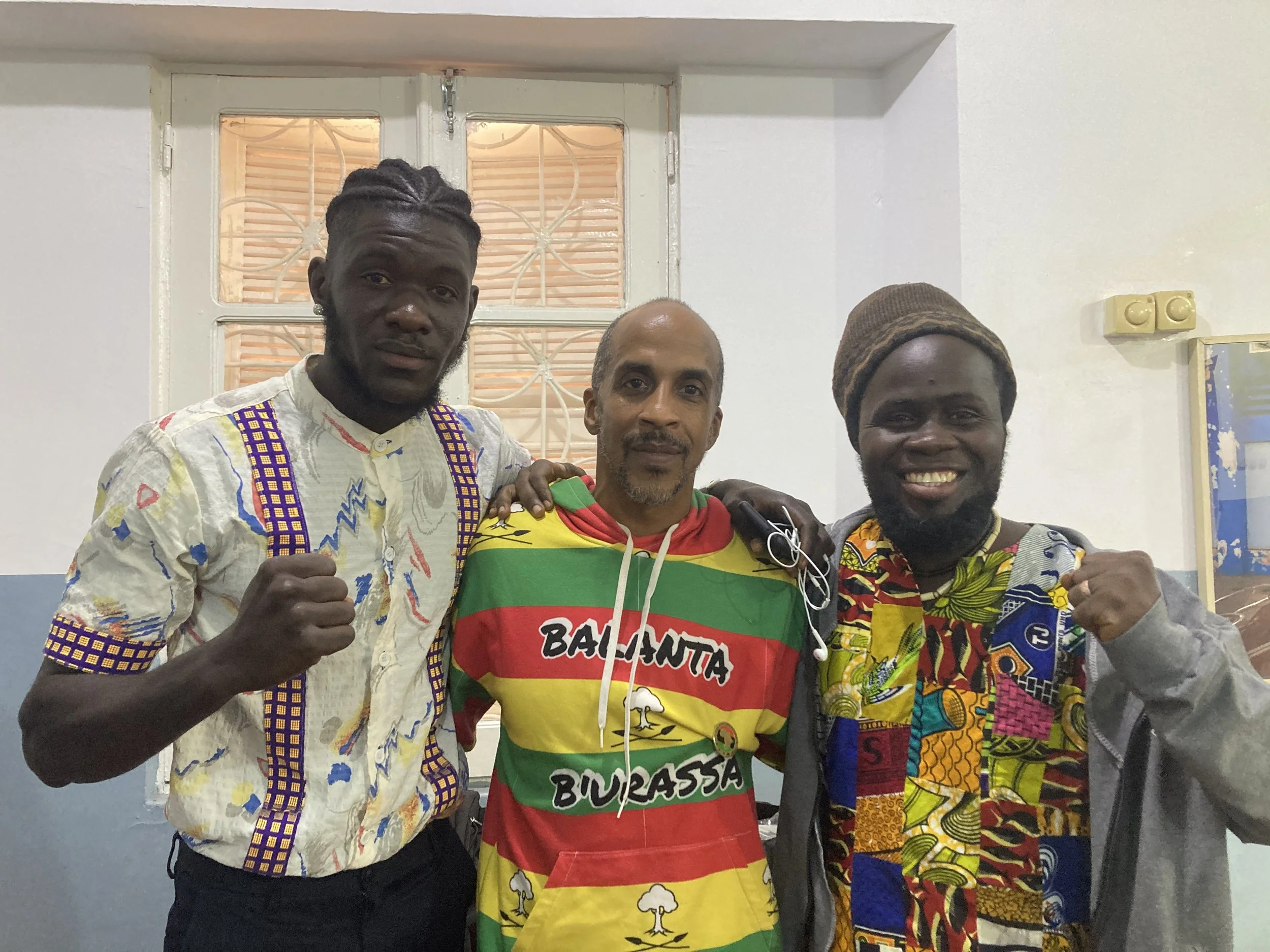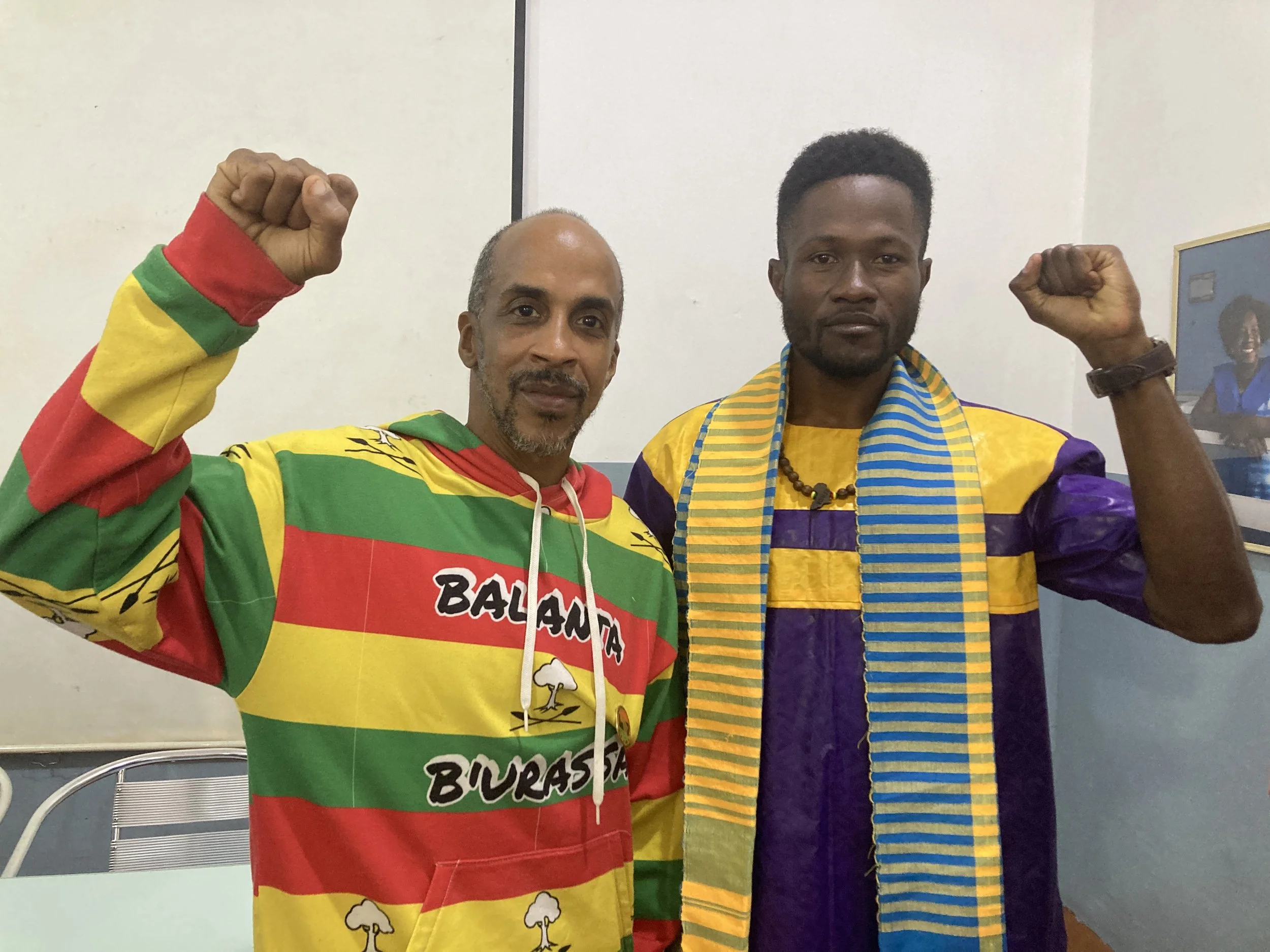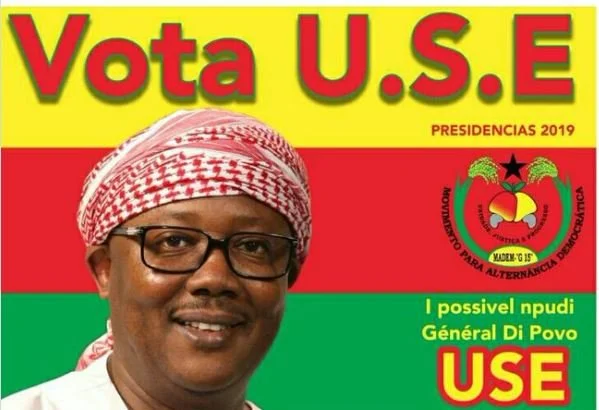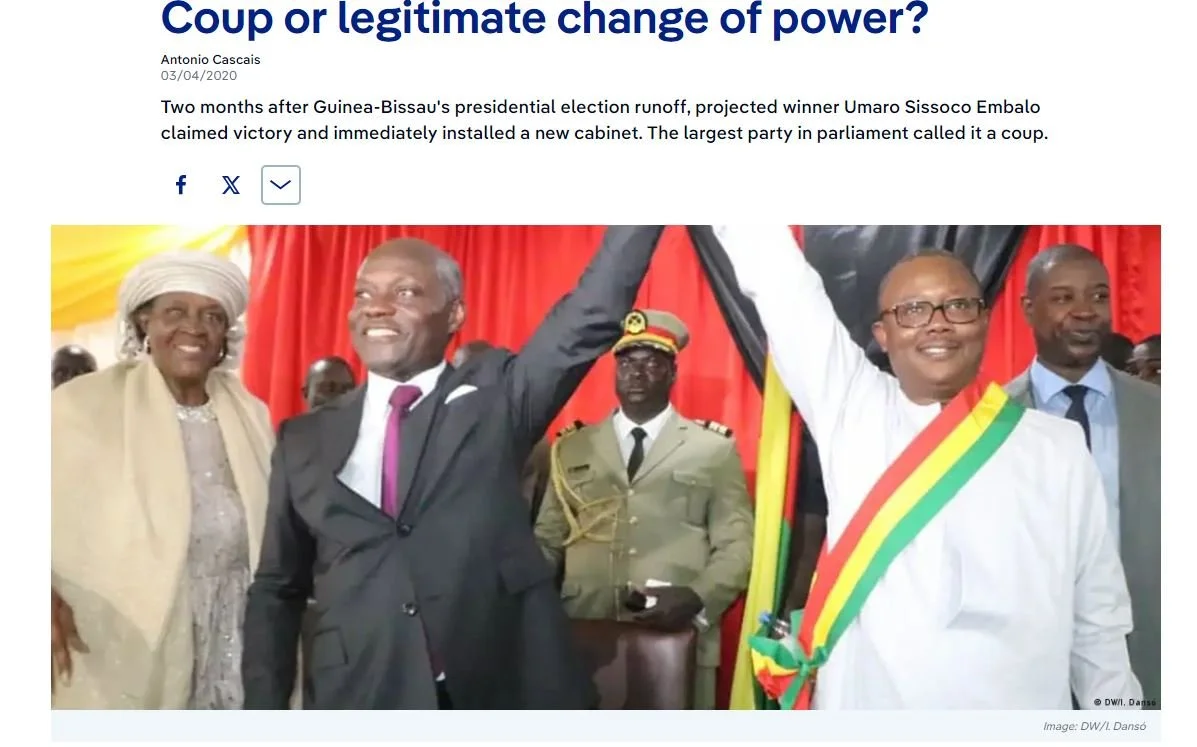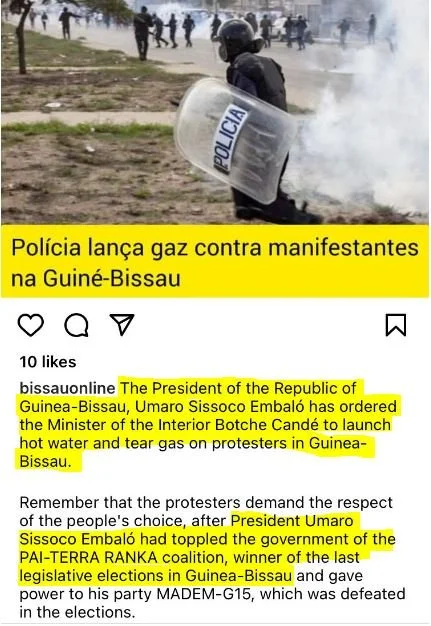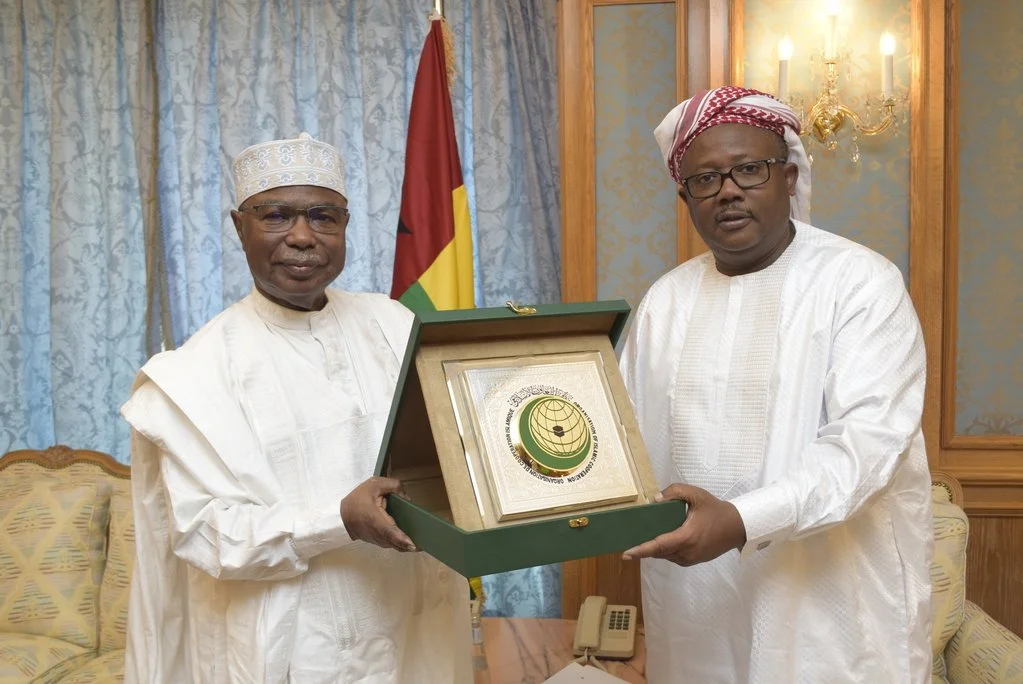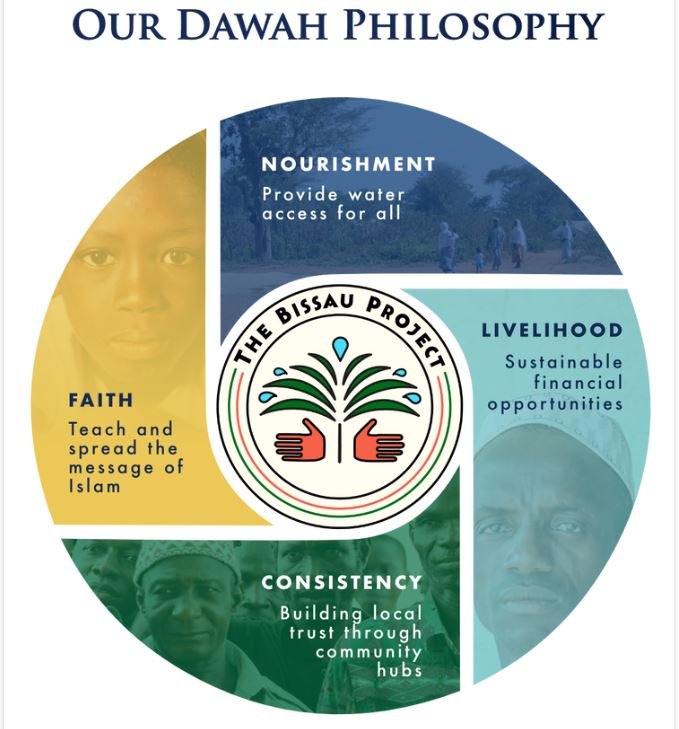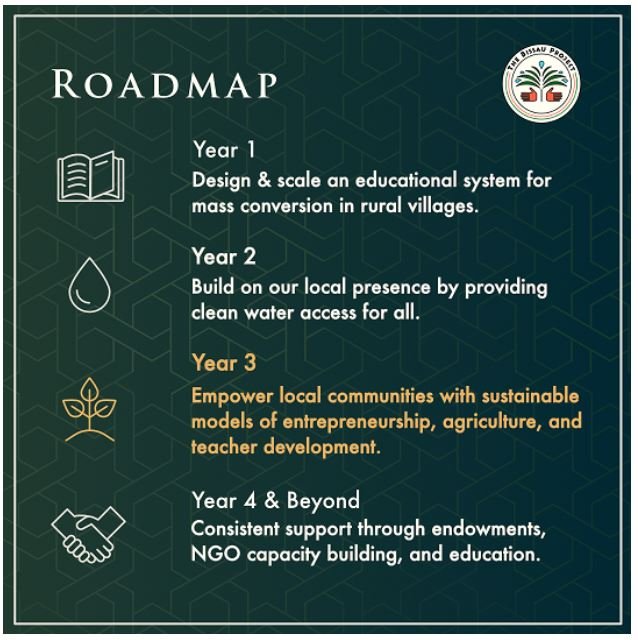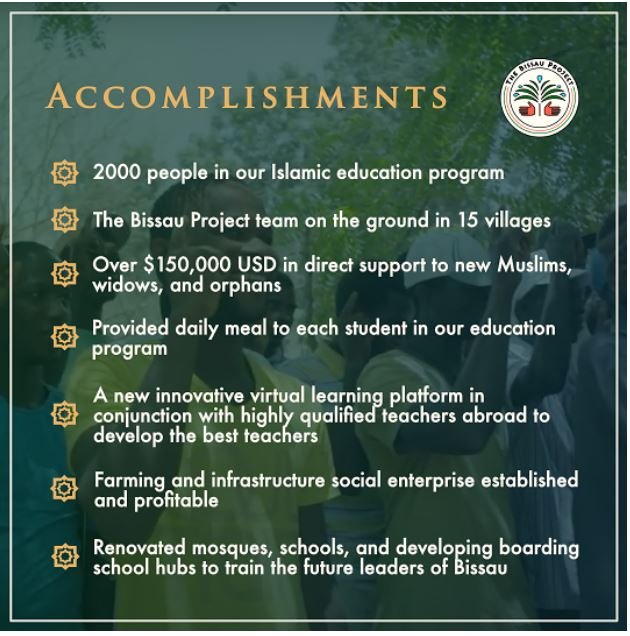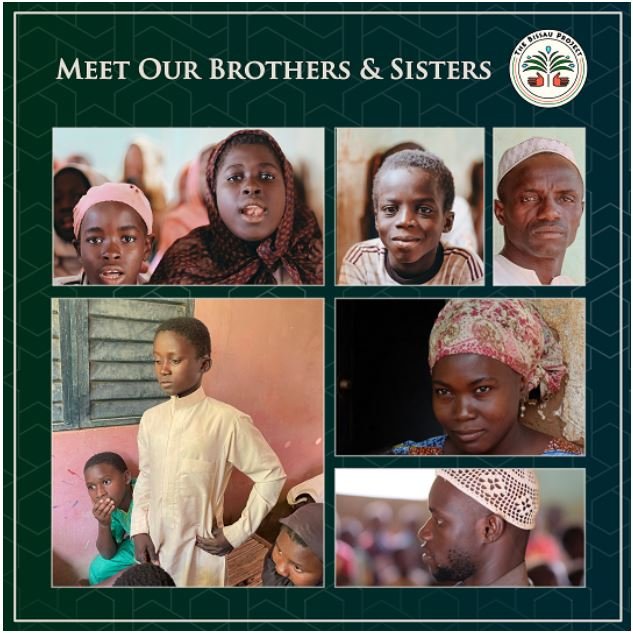January 23, 2024 - Republic of Guinea Bissau
NÔ RAIZ COLLECTIVE OPEN LETTER TO THE PRESS
“Coletivo NÔ RAIZ, is a civil entity, focused on the restoration of African knowledge and ancestral values, non-profit, non-partisan, constituted for a period indeterminate, whose foundation is based on the emancipation and affirmation of Africanity.
The aforementioned Collective became aware through the social network of the Guinea-Bissau National Television (TGB) of a divisive video with precepts of Islamic fundamentalism. It is worth mentioning that (TGB) covered the conversion ceremony to Islam for the people of the Tinka village, Bissorã sector, Oio Region, northern Guinea-Bissau.
The ceremony was carried out by members of the Dhawa Barriga do Povo Foundation, on the occasion, the president of the foundation Mohamed Gomes stated that the objective of his organization is essentially to transform the village of Tinka into a Muslim community and those who oppose the Islamic faith will be expelled from the village, even he stressed that they will build the mosque, water holes, also monitor the food and contribute to ensuring that men and women have sustainability funds in the name of Allah.
In view of the above, Coletivo Nô Raiz expresses its deep displeasure with the messages given by the president of the Dhawa foundation, taking into account that it harms seriously the Constitution of the Republic of Guinea-Bissau with regard to secularism and at the same time the principles of good coexistence postulated in different diverse communities throughout the national territory.
We would like to remind the chairman of the Dhawa foundation that the construction of the Nation State of Guinea-Bissau emerged in the context of diversity, which is why the charter Magna adopted a plurality of religious and spiritual manifestations, in this order of idea it is necessary to encourage respect for different cosmoperceptions, in which there is reciprocal consideration between Bissau-Guineans who practice the most different forms of religious and spiritual practice, therefore, logic does not prevail patent of the colonizer that is based on expulsion, humiliation and division, in this way, No citizen can be expelled from their place of birth for not accepting the Islamic faith or any other religion.
Therefore, the NÔ RAIZ Collective comes through this note to denounce the indecent and hostile behavior of the president of the Dhawa Barriga do Povo foundation and hold him responsible for any incident. We also hold Guinea-Bissau Television (TGB) responsible for broadcasting the matter contrary to the press law that puts national unity at risk.
Therefore, we appeal to the Order of Presidents of Journalists and Journalists Unions and Social Communication Technicians (SINJOTECS) to take action against media bodies that disseminate information that incites violence and that also violates the press law.
Likewise, we appeal to the Government of Guinea-Bissau, Guinean League of Rights Human Rights (LGDH), Association of Young Promoters of Human Rights (AJPDH) and the Imams to intervene in the matter.
NÔ RAIZ repudiates all actions of religious fundamentalism that jeopardize good coexistence among Bissau-Guinean citizens.
Below is the attached video.”
On Wednesday, January 24th, Balanta B’urassa History and Genealogy Society in America President Siphiwe Baleka attended the Coletivo NÔ RAIZ press conference to express solidarity on behalf of the estimated 30,000 Balanta descendants in the United States. Information provided by the Collective indicates that the Islamic Organization instructed the converts to expel from their homes or villages all those who did not agree to convert.
“Because they refused to convert, they are being threatened with expulsion from the tabanca. They are forcing converted brothers to expel their brothers who refused to do so,” Mr. Pereira said.
“We applaud the Collective’s strong stance against the religious supremacy, religious cleansing and terrorism being brought against the Balanta people in the Tinka village. It amounts to terrorism and it is a violation of human rights and international law. The Balanta Society in America stands with you in opposing this evil and we will use our networks to attract international attention,” said Mr. Baleka.
After the press conference, arrangements were being made to visit the village in a few days. Already, several Balanta representatives have traveled to the region to investigate.
NÔ RAIZ COLLECTIVE press conference, January 24, 2024.
Siphiwe Baleka with Carlos Peirera (right), Coordinator of Coletivo NÔ RAIZ”
Siphiwe Baleka with Ncanande Ca
On Wednesday morning, January 25, Carlos Peirera was scheduled to appear on the national television program Bom Dia Guinie. However, minutes before the live interview, TGB suspended the program. It should be noted that earlier this year, the President of the Republic, Umaro Sissoco Embaló, dismissed the Managing Director of TGB, journalist Tengna Na Fafe, and replaced him with the new Director General of TGB, Dr. Amadú Djamanca who took office just two days prior on January 23.
Is the President of the Republic, Umaro Sissoco Embaló CONNECTED TO THE Dhawa Barriga do Povo?
While there is no evidence connecting the President to the Dhawa Barriga do Povo Foundation, the fact that his hand-picked national TV Director canceled the interview with Mr. Pereira, raises suspician. Why is the President protecting terrorists?
First, we need to understand some aspects of his background. Embalo is a member of the Fulani ethnic group who studied social and political science in Spain and Portugal.During his service in the military, he trained in National Defense Studies at the National Defense Center of Spain, and underwent further studies on National Security in Brussels, Tel Aviv, Johannesburg, Japan and Paris. A reserve brigadier general, he retired early in the 1990s and and launched an investment fund set up by the then Libyan government. etween 2016 and 2018, he serves as Prime Minister under President Jose Mario Vaz. At the time of the elections, 47-year-old Embaló favoured wearing a red-and-white Arab keffiyeh headdress. During the election run-off, Embaló formed alliances with the other defeated candidates, including the outgoing President Vaz, to win 53.55 percent of the votes.
It is important to remember how the President came into office. According to the BTI Guinea Bissau Country Report 2022,
“The outcome of the presidential election, which eventually took place in November and December 2019, was highly contested. Former Prime Minister Umaro Sissoco Embaló of the pro-Vaz Movement for Democratic Change (MADEM-G15) emerged victorious from the elections. Meanwhile, the PAIGC argued that the elections were manipulated and took the case to the Supreme Court. Following the confirmation of the results by the electoral commission, Embaló declared himself president in February 2020. That way,
Embaló bypassed both the Supreme Court and the parliament. The army secured the ceremony by deploying a significant number of soldiers.
Gomes and the PAIGC have described this as a putsch. Although the Economic Community of West African States (ECOWAS) ultimately recognized Embaló as president, many international actors such as the European Union only “took notice” of the takeover without formally recognizing Embaló. Fourthly, after Embaló’s self-inauguration, troops invaded the Prime Minister’s Office while Embaló sacked Gomes. Gomes fled to the French embassy, then stayed at the U.N. headquarters in Bissau. The same day, Embaló nominated Nuno Gomes Nabiam (Assembly of the People United–Democratic Party of Guinea-Bissau, APU-PDGB) to be the new prime minister. Gomes and the PAIGC questioned the legitimacy of Embaló and Nabiam.
The army also occupied other state institutions, including state-owned radio and TV stations, the Supreme Court, and the parliament, as well as the home of leading PAIGC officials and former government members.
The brief interim presidency of Speaker of the Parliament Cipriano Cassamá (PAIGC) ended when Cassamá resigned following alleged threats by the army. Intimidation and repression have increased.”
Two years ago journalist Eduardo Campos Lima reported that Bishop José Lampra Cá, a priest in Guinea-Bissau, received death threats after he posted critical comments about President Umaro Sissoco Embaló on social media on January 2, 2022. Lima warned,
“That is an unacceptable attempt of intimidating and silencing people with a critical view of the government. They [Embaló and his supporters] want to implant an authoritarian and absolutist regime, so they have difficulties to deal with discordant opinions,” Bubacar Turé, the Bissau-Guinean League of Human Rights Vice President, told Crux.
Turé accused Embaló of human rights violations against journalists, members of civic organizations, and religious leaders.
“He is waging war against everybody. He is totally isolated now, that is why he attempts to manipulate people from his ethnicity, the Fulani, and from his religion, Islam. But only small segments support him,” he said.
About 45 percent of the 2 million Bissau-Guineans are Muslim and 22 percent are Christian. Turé said that the country has a religious atmosphere of tolerance and that Embaló will not succeed in his effort to create inter-faith conflicts.
“He tried to manipulate Islamic organizations after the bishop’s comments, with the intention of making them publish a statement against the Church. But they refused to do so. Only a small group did it,” Turé said.
Tamba said that the Catholic Church has a great moral authority in the country, something that displeases the President.
“By attacking a bishop or threatening a priest, he thought he would be able to silence us. But that is not true,” the priest said.
The priest added that Embaló, who once compared himself to the Philippine leader Rodrigo Duterte – notorious for his zero tolerance on crime policies and the object of several accusations of human rights violation – will not be able to consolidate a dictatorial regime in Guinea-Bissau.
“But he will keep trying to do so. His tactics is dividing to conquer,” Tamba said.
As ethnic Fulani, Embaló is the first Muslim to occupy the presidential office. At his inauguration, attended by only two foreign representatives, the ambassadors of Gambia and Senegal, Sissoco Embalo vowed to be president of all "regardless of their ethnicity or religion." The new President stated “I have no role model, I admire no one,” and that his governing style is that of "Embaloism", which he defines as "order, discipline, and development", asserting that "there is neither small state nor small president".. Filipino Rodrigo Duterte , a populist leader who has distinguished himself since his election in 2016 by serious human rights violations in the name of the fight against drug trafficking and the defense of national security. “In three months, he put an end to many institutionalized practices” , says President Embaló. One of the first acts of the President Embaló was ordering the installation of CCTV surveillance cameras across the country.
Indeed, the reign of President Embaló has seen increased attacks on the media, as documented by the Committee to Protect Journalist (CPJ). On March 12, 2021 in the capital, Bissau, five armed men in plain clothes attacked and tried to abduct Adão Ramalho, a reporter for the local broadcaster Radio Capital FM, while he was covering the return of exiled opposition leader Domingos Simões Pereira. The men beat Ramalho with their rifles, punched and kicked him, and tried to shove him into an unmarked vehicle, he said. He resisted, and bystanders intervened and pulled him away from the attackers. Previously, on March 9, a group of four unidentified men abducted, robbed, and beat journalist António Aly Silva in Bissau, as CPJ documented at the time. Silva told CPJ that he suspected the attack may have been linked to a recent article he had written criticizing the administration of President Umaro Sissoco Embaló.
On July 21, 2021, a Guinea-Bissau Coast Guard officer assaulted and detained Emerson Gomes, a presenter and trainee journalist at Djan-Djan Community Radio in Bubaque, a town in the country’s Bijagos archipelago, accusing the outlet of spreading false news.
On February 8, 2022, a group of about four unidentified men fired guns at the headquarters of privately owned Radio Capital FM, a critical outlet that covers politics and social issues in Bissau, the capital, and then broke into the office and ransacked it. The attackers, some in military uniforms and others in civilian clothes, shot and destroyed broadcasting equipment throughout the office. The station often reports critically on the government of President Umaro Sissoco Embaló, and that morning had hosted a call-in show for listeners to comment on the country’s failed February 1 coup attempt.
President Embaló’ dissolved the National Assembly in May 2022 after falling out with lawmakers, describing the legislature as a "space for guerrilla politics and plotting".
On October 10, 2022, armed men in police uniform arrived at privately owned Rádio Galáxia de Pindjiguiti in Bissau to arrest Tiano Badjana, the station’s acting director. The incident followed the station’s broadcast of a news report that day about the disappearance of a large amount of drugs seized in a police operation that implicated the Public Order Secretary of State, Augusto Kabi.
On November 29, 2022, a group of men including the head of security for Guinea-Bissau’s president abducted Marcelino Intupe from his home and assaulted him. Intupe, a lawyer and political commentator for the privately owned broadcaster Radio Bombolom, had criticized a rally attended by Tcherno Bari, the head of the president’s security force.
In a January 9, 2023 letter, the Ministry of Media ordered the privately owned Radio Capital FM to cease broadcasting immediately - the only outlet to have its license revoked under the pretext of not paying licensing fees.
The above, by no means exhaustive, demonstrate President Embaló’s dictatorial intolerance of free speech and political dissent and opposition. On January 8, 2024, President Embaló ordered the use of hot water and tear gas on peaceful protestors. BBHAGSIA President Siphiwe Baleka was detained and had his cell phone seized..
Then, on January 16, Botche Cande, in violation of the Constitution, prohibited all public demonstrations. Two days later, Decade of Return Coordinator Diana Taborda Gomes was captured by armed security forces and detained.
So what does any of this have to do with Mohamed Gomes and the Dhawa Barriga do Povo Foundation? Nothing as of yet. However, last year, President Embaló used security forces against the will of the people to demolition Bissau’s only protected green space, the Lagoon of Mbatonh in order to build a mosque.. This caused outraged from civil society. As one commentator put it, “DESTROY A NATURE PARK LIKE M'BATONHA TO BUILD A MOSQUE AND SCHOOL FUNDED BY TURKEY??? IS THERE ANY MORE ROOM FOR THIS?” The project is implemented by the Bissau City Council, in partnership with Monte – ACE with funding from the EU and the Camões Institute.
Sociologist, journalist and university professor Diamantino Domingos Lopes, also secretary of SINJOTEC, the Guinean media organization, said he could not remain silent in the face of the extermination of the Parque Mbatonha lagoon.
"I can't stay silent. It's hard to believe that this is happening, true environmental destruction. Just comparing the images, it is easy to see that we are facing total ignorance, for all that is sociocultural, traditional and environmental value. . . . They simply decided to murder the animals that live there and compromise all interests and visions focused on ecological protection. Located in the city center, the lagoon is the only surface freshwater reservoir in the region, where more than 100 species of birds come to feed or nest. . . . Some questions for the Bissau City Council, the city's management entity, what is the reason for this extermination of the lagoon, which guarantees life for many living beings? Who is the owner of this project, or rather what they intend to build in this location, which gives rise to this vile environmental crime?”
President Embaló’s respone? “development outweighs environmentalism”. The immediate judgement from God and the answer from nature was to flood the city!
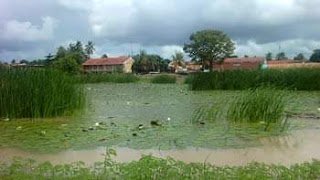
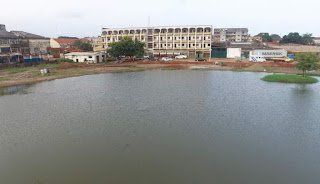
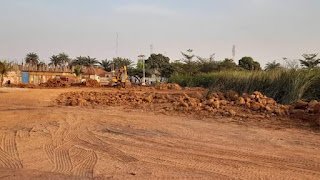
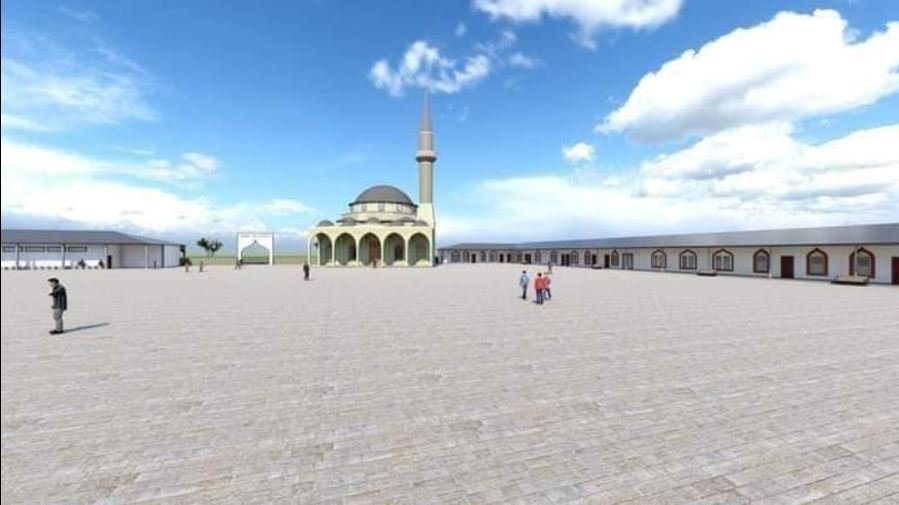
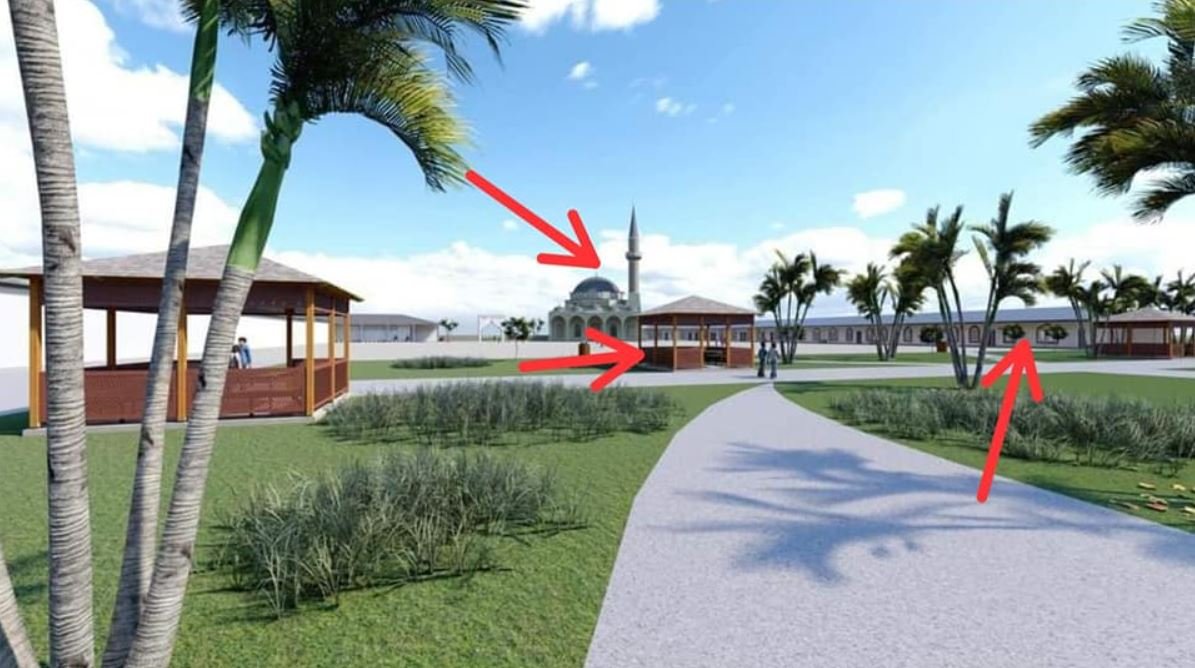
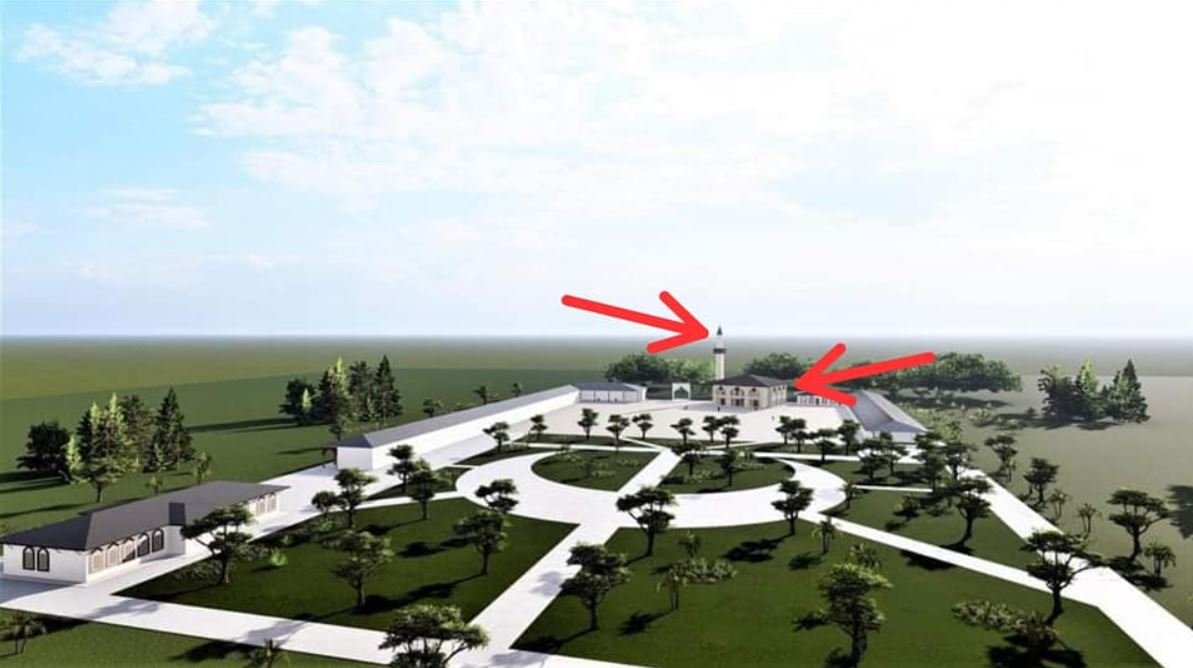
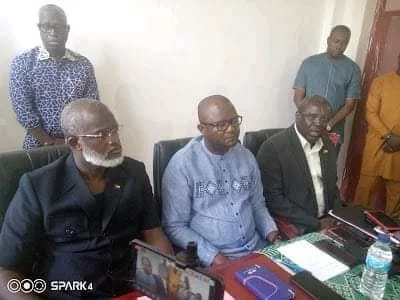
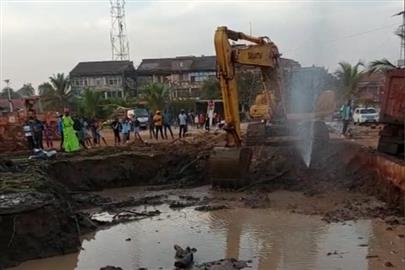
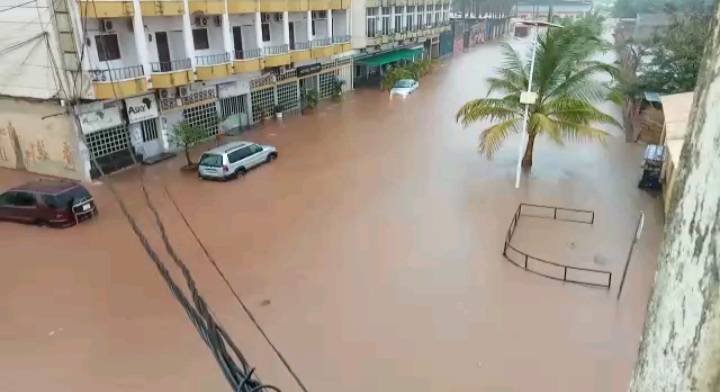
Are we witnessing the Islamization of Guinea Bissau? Are Mohamed Gomes, the Dhawa Barriga do Povo Foundation, and President Embaló all part of some plot? According to Aid to the Church in Need (ACN),
“The long-standing cordial relationship between Christians and Muslims in Guinea-Bissau is under threat with the ongoing religious-based intimidation that targets churches, the Catholic Pontifical and charity foundation, Aid to the Church in Need (ACN), has said.
According to the charity foundation that supports the people of God in countries experiencing extremism, recent activities in Guinea-Bissau, including a church vandalization, bribing Christians to convert to Islam, as well as the springing up of Mosques in every part of the country casts a dark shadow over the future of Christianity in the West African nation.
“First was the attack, never seen before in Guinea-Bissau, on a church. It was in July. Then, in September, the government decided to suspend tax exemptions for the Catholic Church. In the middle of all this and for some time now, the construction of new mosques has been proliferating throughout the country,” ACN says in a Friday, December 9 report.
The Catholic charity spoke to Casimiro Jorge Cajucam, the Director of Sol Mansi, a Diocesan radio station supported by the foundation, who warned of the worrying signs that the Portuguese-speaking African country will become an “Islamic state”.
In the interview with ACN, Casimiro Cajucam warned about
the risk of Guinea-Bissau ‘falling into the clutches of religious extremism.’. . . In the last ten years, hundreds of mosques have been built. There is a proliferation of mosques in Guinea-Bissau that are financed by very rich Arab countries. There are people in the villages, Christians, and non-Christians, who are funded to convert to Islam. We are facing that threat,’ Casimiro Cajucam says. . . . ‘There are politicians who are trying everything to transform Guinea-Bissau, to take it from a secular state to put it as an Islamic state. There is that trend and that is a threat.’
The Director of Sol Mansi radio speaks of a ‘rehearsal’ for a terrorist attack when referring to the incidents at the church in Gabu, adding, ‘What happened in the parish in Gabu, for many, is the first rehearsal for a terrorist attack. It has never happened before.’”
To be sure, the Organization of Islamic Cooperation reports on its website:
“The President of the Republic of Guinea Bissau, H.E. Umaro Sissoko EMBALÓ, who is visiting Saudi Arabia, received on 12 April 2023 at Makkah Al-Mukarramah, the Secretary-General of the Organization of Islamic Cooperation (OIC) Mr HisseinBrahim Taha.
The meeting discussed cooperation between the OIC and the Republic of Guinea Bissau and the ways and means of strengthening it, particularly on issues of mutual interest, notably peace and development in the world, in general, and Africa, in particular.
The Secretary-General praised Guinea Bissau’s contribution to joint Islamic action as well as the efforts deployed in West Africa by President UmaroSissoko EMBALÓ in his capacity as Chairman-in-Office of ECOWAS.”
Now consider the Bring Islam to Guinea Bissau project that is supporting new Muslims in Guinea Bissau through Zakat eligible donations. (Zakat is the third pillar of Islam; it’s also an obligatory act of worship payable each year to those in need by every able Muslim. In His generosity, Allah (swt) gives the donor the beautiful opportunity to purify their wealth and their souls through Zakat.).
BBHAGSIA President Siphiwe Baleka, who has written a three-volume history of the Balanta people, warns,
“Brassa people existed for tens of thousands of years before the birth of the Prophet Muhammad. They knew God and had their own spirituality. they did not need any religious doctrine or rigid religious devotions like praying five times a day in order to live in harmony with nature, God’s creation. It’s ironic that Brassa became known in history as ‘Balant” becuase of their resistances to Islamic domination by the Mali Empire during the 10th to the 14th century. In this sense, Balanta literally refers to ‘those who resist Islamic imperialism’. I am very certain the Balanta communities understand that with forced conversion comes learning Arabic at a time when the Balanta language is at risk of being lost. Forced conversion means no more cumbe (pig). Can you imagine an important event with out cumbe? Amilcar Cabral warned us about foregin domination. It means the loss of one’s culture. Portuguese domination, American domination, Islamic domination. It doesn’t matter. You don’t need more bibles or qurans. You do not need more churches or mosques. What you need is a New Afrikan Education that teaches your children how to harness New Afrikan technologies so that they can continue their sovereign existences as God iintended. Anyone that comes to your village and fails to ask what YOU need or show you how to build upon your own understanding of your envrionment is not for you. They are for themselves! Don’t be tricked by smooth talking Priests or Imams. They can help with development without requiring your conversion!”
